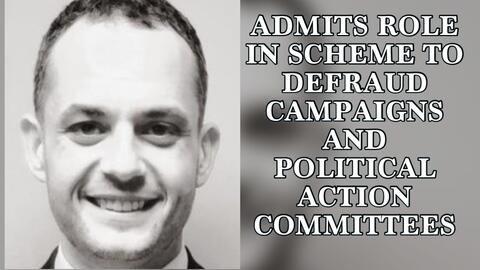By: Richard L. Smith
An Elizabeth man who previously served as a staff member in the New Jersey Senate Monday admitted his role in a conspiracy to falsely inflate the invoices that a political consultant submitted to various campaigns, political action committees, and IRS 501(c)(4) organizations, U.S. Attorney Philip R. Sellinger announced.
According to federal officials, Antonio Teixeira, 43, chief of staff for Senate President Nick Scutari (D-Linden), pleaded guilty before U.S. District Judge John Michael Vazquez to an information charging him with one count of conspiracy to commit wire fraud and one count of tax evasion.
According to documents filed in this case and statements made in court:
From 2014 to 2018, Teixeira conspired with Sean Caddle, and Caddle’s political consulting firms, to defraud various campaigns, political action committees, and 501(c)(4) organizations of $107,800.
Teixeira then failed to report this illicit income on tax forms he filed with the IRS during those same years.
A former New Jersey state senator hired Caddle to create the PACs and 501(c)(4)s so that they could raise and spend money to advocate on various issues, including supporting particular candidates in local races around New Jersey.
Teixeira served as the senator’s chief of staff and wielded influence over the consultants that the campaigns and organizations hired and the budgets that each of these organizations would receive.
Teixeira and Caddle conspired to falsely inflate the invoices that Caddle’s consulting firms submitted to the campaigns, PACs and 501(c)(4)s with phony campaign-related expenditures.
Caddle and Teixeira were fraudulently padding the invoices because they agreed to split the difference between Caddle’s actual campaign expenditures and the overage charged to the organizations.
Caddle paid a portion of Teixeira’s share to him in cash and funneled the remainder to Teixeira via checks made out to Teixeira’s relatives to conceal that campaign money was being kicked back to Teixeira. In total, Teixeira received more than $100,000.
Although Teixeira pocketed these fraudulent proceeds and used the money for personal expenses, he never reported the money on the tax forms he filed with the IRS during the scheme.
The wire fraud conspiracy charge carries a statutory maximum prison sentence of 20 years, while the tax evasion charge carries a statutory maximum of five years.
Both charges are punishable by a fine of $250,000 or twice the gross gain or loss from the scheme, whichever is greatest.
Sentencing is scheduled for March 27, 2022.
